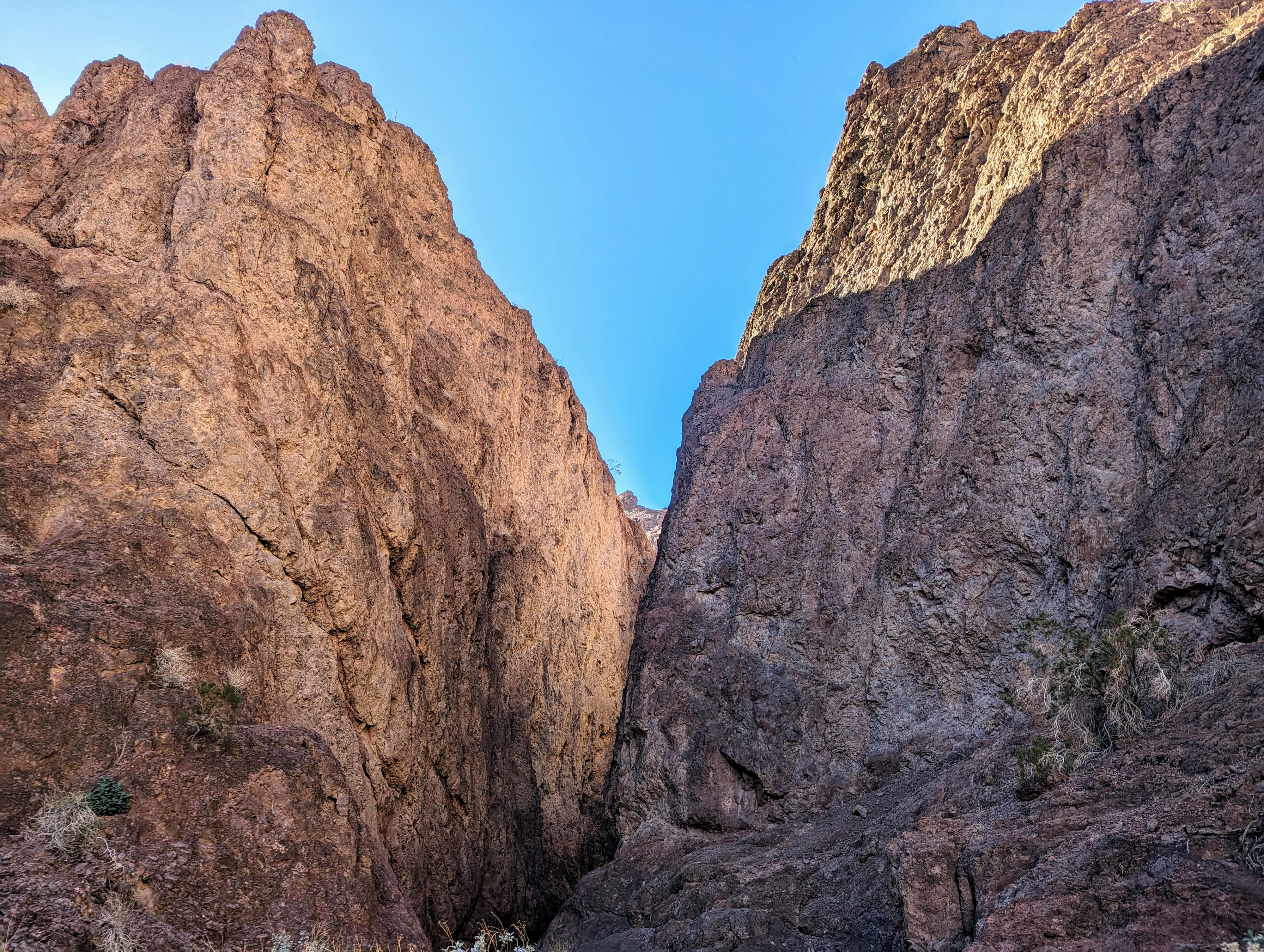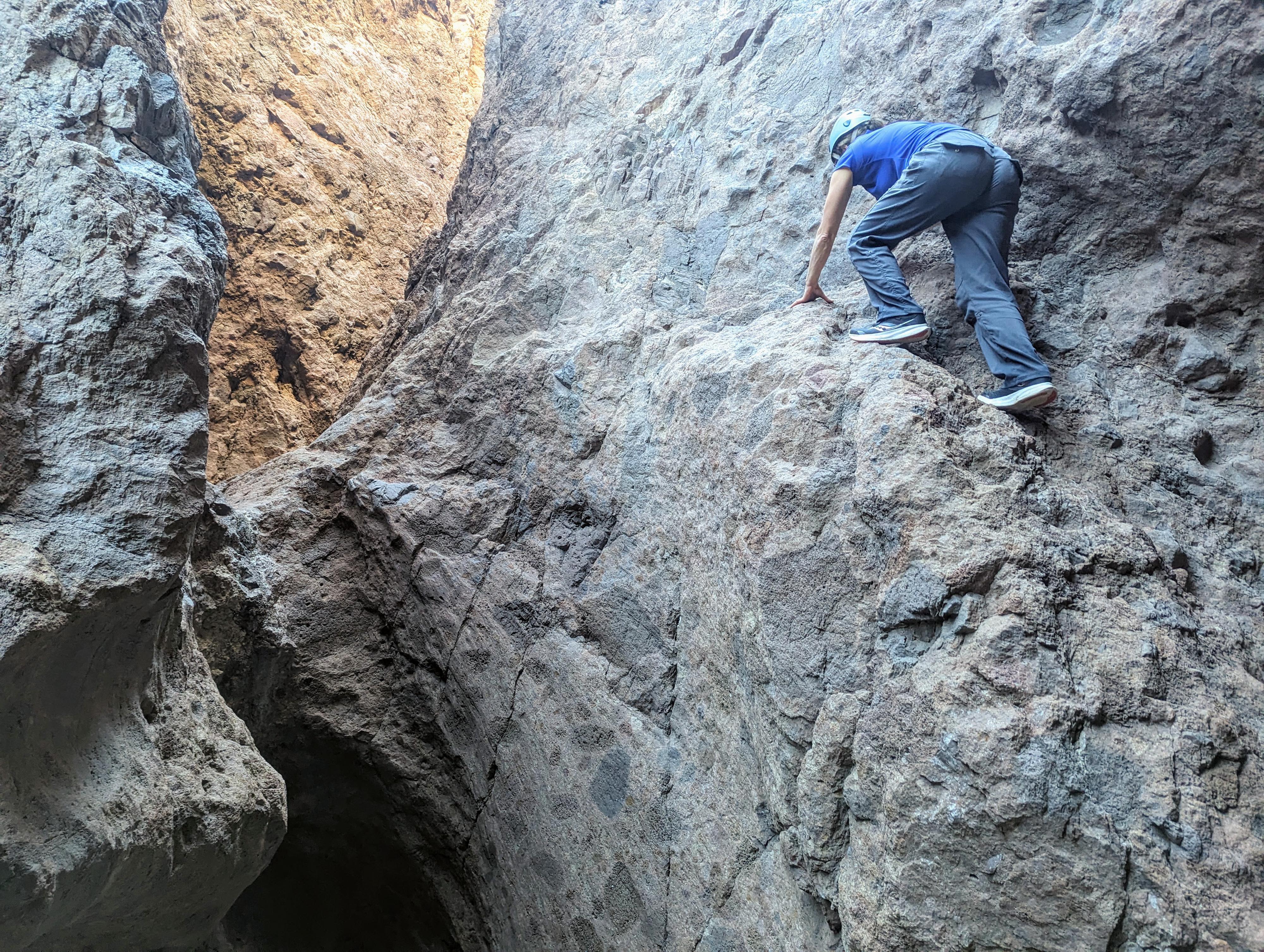 Canyoneering Weeping Springs and Bighorn Canyon
Canyoneering Weeping Springs and Bighorn Canyon
Black Canyon
Overview
|
Thu 67 | 54 |
Fri 65 | 47 |
Sat 72 | 48 |
Sun 80 | 51 |
Mon 78 | 56 |
| View Full Weather Details | ||||
|
Thu 67 | 54 |
Fri 65 | 47 |
Sat 72 | 48 |
Sun 80 | 51 |
Mon 78 | 56 |
| View Full Weather Details | ||||
Weeping Springs is often touted as the best technical canyon in the Black Canyon area. Starting high above the Colorado River, Weeping Springs is a hike until not far from the river, where the canyon deepens in a series of fairly quick rappels. It is a dramatic set of rappels in a deep section of canyon. The canyon ends with 2 choices, packraft 1/4 of a mile down the Colorado River to Bighorn Canyon for the exit, or hike cross-country to Bighorn Canyon and skip the packraft.
I liked Weeping Springs, but thought the exit up Bighorn Canyon was more spectacular and really put the cherry on top of an excellent day! Bighorn Canyon is deeper, narrower, and has a handful of climbing obstacles to keep the day interesting. It also has some bushwhacking down low, but once in the narrows, the pain of the bushwhacking section was soon forgotten!
The exit route up Bighorn Canyon has a few climbing challenges, the hardest being 4th class/easy 5th class with about 5 m ( 17 ft. ) of exposure. This hardest climb is a traverse that would be difficult to protect, but has very positive holds.
Full Details
Login For Full Details!
- OR if you are not yet registered -
Register
(It is free and easy.)


